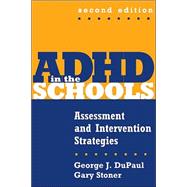
| Overview of ADHD | p. 1 |
| Prevalence of ADHD | p. 4 |
| School-Related Problems of Children with ADHD | p. 4 |
| Subtypes of ADHD | p. 8 |
| Possible Causes of ADHD | p. 12 |
| The Impact of Situational Factors on ADHD Symptom Severity | p. 16 |
| Long-Term Outcome of Children with ADHD | p. 18 |
| Overview of Subsequent Chapters | p. 21 |
| Assessment of ADHD in School Settings | p. 23 |
| The Use of Diagnostic Criteria in the School-Based Assessment of ADHD | p. 24 |
| Overview of Assessment Methods | p. 28 |
| Stages of Assessment of ADHD | p. 31 |
| Developmental Considerations in the Assessment of ADHD | p. 56 |
| Implementation of the Assessment Model | p. 57 |
| Case Examples | p. 58 |
| Involvement of School Professionals in the Assessment Process | p. 64 |
| Summary | p. 65 |
| School Hybrid Observation Code for Kids | p. 67 |
| Criteria for the Teacher-Student Behavior Coding System | p. 70 |
| ADHD and Learning Difficulties: What Is the Connection? | p. 72 |
| Association of ADHD with Cognitive Deficits | p. 73 |
| Association of ADHD with Academic Underachievement | p. 75 |
| Possible Causal Connections between ADHD and Academic Problems | p. 76 |
| Subtyping of ADHD Based on Academic Skills Deficits | p. 90 |
| Assessment Guidelines: ADHD and Academic Performance Deficits | p. 92 |
| Case Example | p. 97 |
| Implications for Intervention | p. 99 |
| ADHD and Special Education | p. 101 |
| Summary | p. 106 |
| Zirkel's Checklist for Determining Legal Eligibility of ADD/ADHD Students | p. 107 |
| Early Screening, Identification, and Intervention | p. 109 |
| ADHD in Young Children | p. 110 |
| Screening and Diagnostic Procedures | p. 113 |
| Early Intervention and Prevention Strategies | p. 119 |
| Community-Based Prevention and Intervention | p. 123 |
| Conclusions | p. 137 |
| School-Based Intervention Strategies | p. 139 |
| Conceptual Underpinnings of Interventions for Attention Problems | p. 140 |
| Basic Components of Classroom-Based Interventions | p. 144 |
| Contingency Management Procedures | p. 147 |
| Self-Management Strategies | p. 164 |
| Effective Instructional Strategies | p. 170 |
| Peer Tutoring | p. 179 |
| Computer-Assisted Instruction | p. 180 |
| Task and Instructional Modifications | p. 181 |
| Strategy Training | p. 184 |
| Considerations with Secondary-Level Students | p. 185 |
| Providing Teacher Support | p. 187 |
| Conclusion | p. 189 |
| Medication Therapy | p. 190 |
| Types of Psychotropic Medications Employed | p. 191 |
| Behavioral Effects of Stimulants | p. 195 |
| Possible Side Effects of CNS Stimulants | p. 204 |
| When to Recommend a Medication Trial | p. 208 |
| How to Assess Medication Effects in Classroom Settings | p. 210 |
| Communication of Results with Prescribing Physician | p. 218 |
| Ongoing Monitoring of Medication Response | p. 220 |
| Limitations of Stimulant Medication Treatment | p. 220 |
| Summary | p. 222 |
| Stimulant Medication Treatment of ADHD: A Teacher Handout | p. 223 |
| Adjunctive Interventions for ADHD | p. 227 |
| School-Based Interventions | p. 228 |
| Home-Based Interventions | p. 233 |
| Interventions with Limited or No Efficacy | p. 238 |
| Summary | p. 240 |
| Communication with Parents, Professionals, and Students | p. 241 |
| DSM Diagnoses and Educational Services | p. 243 |
| Educational Training and Responsibilities | p. 246 |
| Issues Surrounding Stimulant Medication Treatment | p. 249 |
| Communication between Education Professionals and Parents | p. 252 |
| Communication with Physicians and Other Professionals | p. 256 |
| Communication with Students | p. 257 |
| Summary | p. 259 |
| Suggested Readings on ADHD and Related Difficulties for Parents and Teachers | p. 261 |
| Referral Letter to a Physician | p. 262 |
| Referral to Physician for Possible Medication Trial | p. 263 |
| Description of Medication Trial to Physician | p. 264 |
| Report of Results of Medication Trial to Physician | p. 266 |
| Conclusions and Future Directions | p. 268 |
| Future Directions for Working with Students with ADHD | p. 271 |
| Conclusions | p. 280 |
| References | p. 281 |
| Index | p. 323 |
| Table of Contents provided by Ingram. All Rights Reserved. |
The New copy of this book will include any supplemental materials advertised. Please check the title of the book to determine if it should include any access cards, study guides, lab manuals, CDs, etc.
The Used, Rental and eBook copies of this book are not guaranteed to include any supplemental materials. Typically, only the book itself is included. This is true even if the title states it includes any access cards, study guides, lab manuals, CDs, etc.